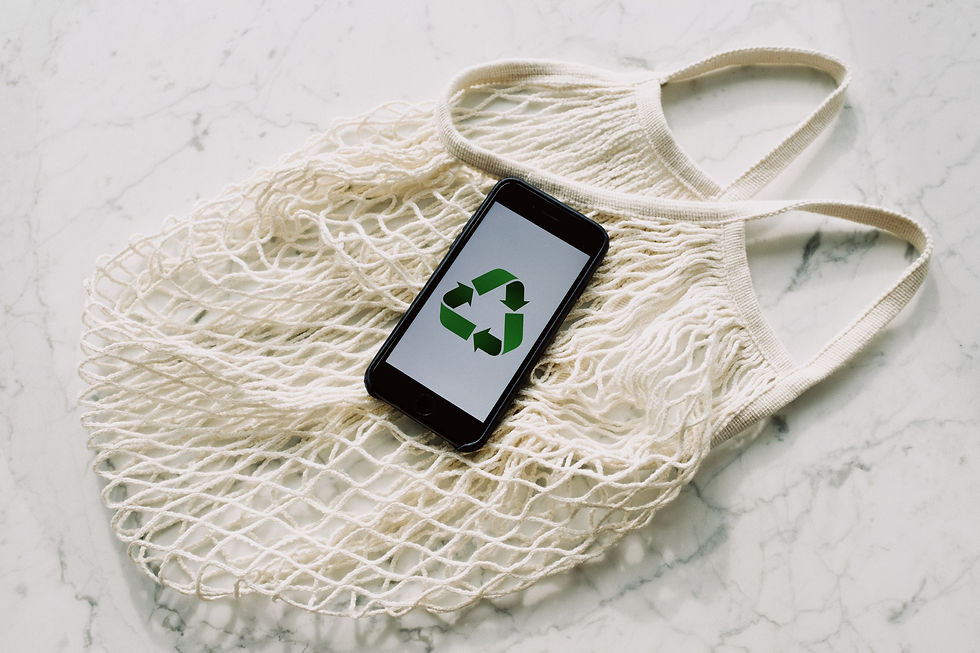
Sustainability has been a topic that has skyrocketed in popularity and demand in recent years. This is due to the rise in people wanting to make a change to the planet that we live on. Within the past few decades, we have slowly been doing irreversible damage to our planet, It's now becoming a major problem and people have begun to realize the consequences humanity will face if we don't slow down climate change and the damage we are doing to our home. As concerns have been rising and people have been expressing the importance of slowing down climate change. A vast majority of us have been slowly making changes to our lifestyles such as cutting down on fast fashion brands and only buying timeless clothing items, swapping products for eco-friendly products that have no harmful ingredients, and even something as simple as swapping single-use bags to reusable shopping bags. These are just very few examples that people have been opting for.
In this article, I am going to be discussing ways in which you can transition slowly to a more sustainable lifestyle with some simple tips that are great for newcomers to this movement.
Reduce wastage, recycle and upcycle

Wastage is one of the biggest contributors to the issue we face with climate change, with households alone in the UK contributing to 9.5 tonnes of food wastage. On average a third of the planet's food goes to waste, which leads to 8-10% of greenhouse gases being released globally.
Not recycling also has a huge impact on climate change, with landfills being filled up and the anaerobic decomposition in landfills. Methane is then released into the air which becomes more potent in trapping heat in the atmosphere. Methane is also the biggest contributor of greenhouse gases accounting for up to 25% of emissions. This is where it becomes important to recycle waste and upcycle items. For example, if you have some empty jars, you can use them for storage, or if they're big enough use them to store food in them. Got unwanted clothes and don't want them anymore? Sell them on second-hand sites and take them to donation sites or charity shops. Just don't throw them away as they will end up in landfill and clothing items can take up to 200 years to decompose.
Transition to a plant-based diet

The plant-based diet is becoming more popular than it ever has been, this is due to plant-based food becoming more accessible and people being more aware of the benefits eating plant-based has on the environment. Recent studies, it has shown that the meat and dairy industries are becoming leading factors in environmental damage, as it takes anywhere up to 2,000-8,000 gallons of water to produce a pound of beef. Additionally, it takes 1,950 gallons of water to produce one gallon of cow milk. Meanwhile, the plant industry uses less water and only takes 302 gallons of water to produce a block of tofu. By eating plant-based less water pollution would be generated and habitats can be preserved.
Eating plant-based doesn't mean you have to become vegan or vegetarian, it just means you need to reach towards food that is provided by plants such as fruit, vegetables, nuts, whole grains, etc. You can start this transition by becoming more aware of what you're eating and aiming to eat more whole foods. You can start by choosing one day of the week when you will not eat any dairy or meat products. Then as you become more comfortable with the transition you can gradually increase the days you cut out meat and dairy products, until you reach a level that you're happy with. If you feel you can only manage a few days without meat, try your best to swap dairy products out instead.
Educate others on becoming more sustainable

Part of becoming more sustainable is to educate others on the topic of sustainability. It doesn't have to be anything intense; it can be small simple tips. You can suggest alternatives to their cleaning products that have natural and less harmful ingredients in them or suggest using re-fillable deodorants that don't contain aluminum. These are some simple ways of suggesting people around you be more mindful of what they use.
When educating others, the goal is to change their viewpoint on sustainability and why you're teaching them about that and the effects of climate change. We do have to be mindful in this case, you may be passionate about the subject and dedicated to educating people on swaps that are sustainable but if you become intense about the matter to someone who hasn't done anything like this before. It could ultimately put them off the idea. So, when it comes to educating others, the best thing to do is suggest small and simple tips that they can include in their day-day lives.
Comments